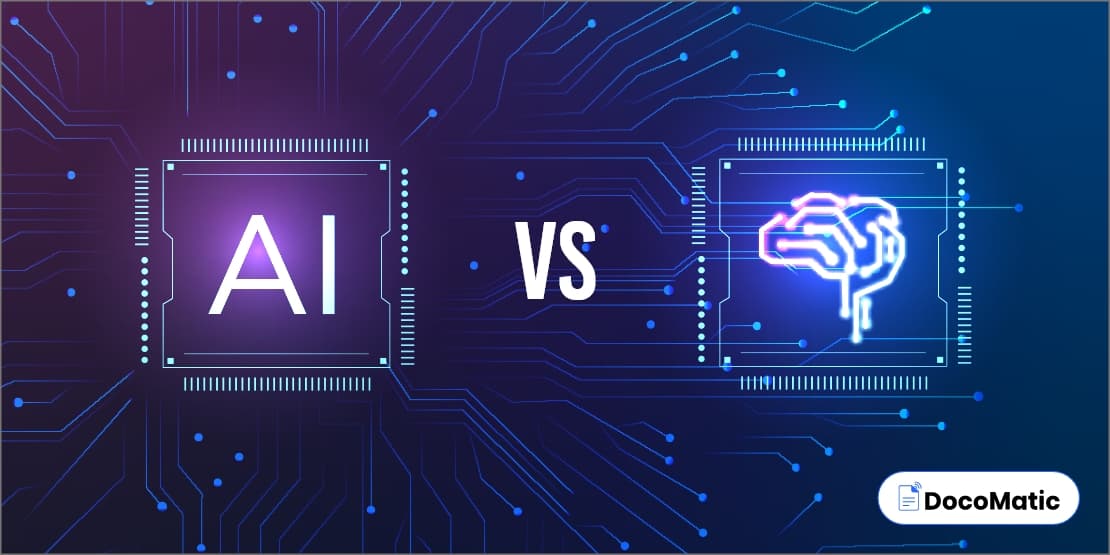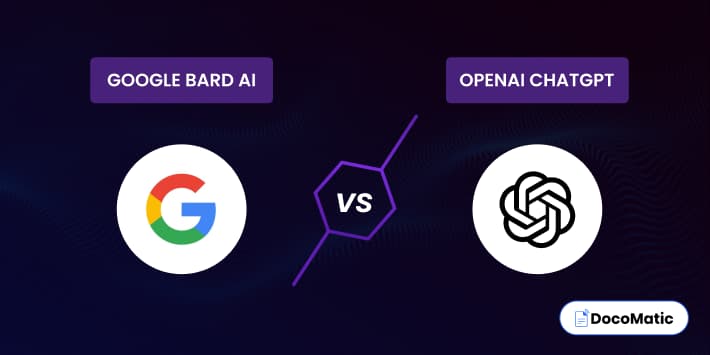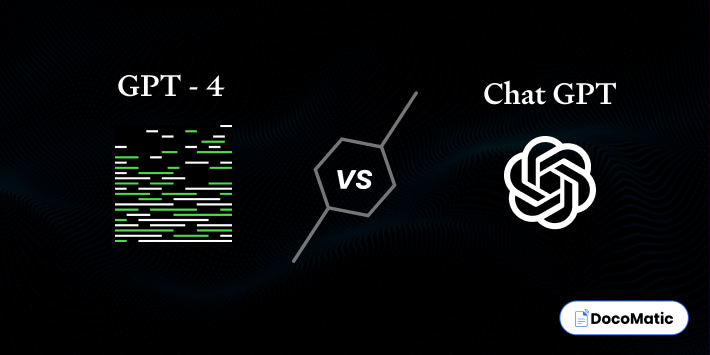The AI market is forecasted to be valued at around $1,394.30 billion by 2029. And this is creating a big advancement and change in how the world uses artificial intelligence. As a result, two major companies have emerged to give a competitive edge over other players: OpenAI and DeepMind. Both these AI titans have made tremendous contributions to the field of research and achieved pretty impressive outcomes in such a short time!
Despite their similar efforts across different domains, OpenAI and DeepMind have a considerable differences in many ways. This blog will help you compare OpenAI vs. DeepMind so that you can understand them clearly. From key areas of research and organizational structures to their ethical outlook, we will cover the major contrasts between the two.
We will start by uncovering the major features, applications, and achievements of each. We will also explore their collaborative and partnership approaches, as well as their safety and ethical policies catering to AI.
Table of Content
OpenAI: Applications and Achievements Across Different Areas
OpenAI is an organization co-founded by Elon Musk, Sam Altman, Greg Brockman, John Schulman, Ilya Sutskever, and Wojciech Zaremba in 2015. It aims to develop helpful and safe artificial intelligence that can be beneficial for the entire humanity. Let’s look at OpenAI’s key features, applications, and achievements:
Area of research
- The research done by OpenAI covers a variety of topics in artificial intelligence, such as large-scale computing, machine learning, education on deep reinforcement learning algorithms, robotics, natural language processing, and game playing.
- The research also focuses on powering AI agents with safe systems that align properly with human values. Their goal has always been society oriented, making it worthwhile for the people.
Language models
- OpenAI has gained a lot of popularity for developing GPT, an advanced language model. The GPT series of models have been created to generate human-like responses. GPT-3 can also be used to create chatbots and boost customer experience.
- DALL.E is another model that generates images when prompted with textual descriptions.
- Other language models from OpenAI can be widely used for various human tasks. These include training chatbots and virtual assistants to generate naturally-toned text in platforms like social media and email.
Robotics
- OpenAI has also delved into the world of robotics, wherein it uses AI to develop systems and train them to control robots.
- These robots are excellent at finishing human tasks, working alongside them, and navigating through dynamic real-world environments.
- The advancement in robotics can tremendously revolutionize industries, including logistics, manufacturing, and space exploration.
Gaming
- OpenAI has also earned great recognition in the field of games. It developed AI systems that could win very complex games such as Dota 2 and defeat human champions in 2019.
- These achievements in the gaming field showcase the vast potential of its ability to solve critical problems and make informed decisions in various environments.
Partnerships and collaborations
- OpenAI has partnered with numerous companies and organizations to proceed in its research. This is helping them develop practical applications of artificial intelligence.
- It is worth noting that Microsoft invested $1 billion in OpenAI, whereas Tesla has utilized its technology to improve the performance of their autonomous driving systems.
Ethical considerations
- OpenAI is committed to developing AI in a way that is safe and beneficial for all of society.
- The organization has also published a set of ethical guidelines to show their research and development, as well as created an AI safety team.
- It plans to be responsible and ethical to ensure that AI is utilized for the betterment of humanity.
DeepMind: Applications and Achievements Across Different Areas
DeepMind is a research organization in artificial intelligence, founded in 2010 in London. It came under Google’s umbrella in 2015, hence it is now a subsidiary of Alphabet Inc. It aims at solving intelligence with the advancements in AI.
It also focuses on developing systems that are able to solve complicated problems without explicitly programming them to do so. DeepMind possesses the below mentioned key features, applications, and achievements:
Reinforcement learning
- DeepMind has gained a good reputation in the area of reinforcement learning techniques.
- Its work involves training AI systems to learn through interactions with their environment and gaining feedback as penalties or rewards.
- One of the key examples of this approach is DeepMind’s AlphaGo system. It defeated the world champion at a human-created ancient Chinese board game named Go.
Neural network
- The use of neural networks is another way DeepMind is training its AI systems. This machine learning model takes inspiration from the structure of the human brain.
- These networks consist of interconnected nodes that are used to process and transmit information.
- Thus, the system learns from a corpus of data and makes predictions or needed decisions as per the learning.
- AlphaFold, one of its developments, can precisely predict the 3D structure of proteins with the help of their genetic sequences.
Collaborations with Google
- Thanks to DeepMind’s partnership with Google, we could see many vital advances in the field of artificial intelligence.
- The AI systems AlphaGo and AlphaFold were developed together by DeepMind and Google.
Healthcare
- DeepMind has greatly contributed to the healthcare industry by applying its AI research, building systems that can check medical images, predict patient analysis, and improve the operational efficiency at hospitals.
- DeepMind’s collaborative effort with the UK’s National Health Service (NHS) is a notable example. It has developed a system that has the ability to determine the early signs of kidney diseases.
Robotics
- The use of AI in robotics is another area of exploration for DeepMind. It is developing systems that are trained to control robots to carry out specific tasks.
- This AI research lab also open-sourced MuJoCo after acquiring it. MuJoCO is an effective contact model that aids research and development in robotics along with other fields.
Comparison Between OpenAI and DeepMind
| Topic/Area | OpenAI | DeepMind |
|---|---|---|
| Ownership | Non-profit organization | Subsidiary of Alphabet Inc. (a company from Google) |
| Research focus | Practical AI applications, fundamental principles of AI, natural language processing, robotics, and gaming | AI safety, neuroscience, deep learning, robotics, and practical AI applications |
| Key AI systems | Advanced language models like GPT-3 and DALL.E | AlphaGo and AlphaZero |
| Programming language | Python | PyTorch |
| Aim | Promote and develop AI models | Specialize in building AI systems that generally require human intelligence. |
FAQs
While both these platforms are contributing to the world differently, it is tough to determine which one is better. OpenAI is gaining a lot of popularity with the onset of GPT-3. Comparatively DeepMind’s AI is used in a contrasting role. So, you can use them depending on the purpose of your organization’s goals.
DeepMind, Microsoft AI, IBM Watson, and Baidu AI are a few of the competitors of OpenAI.
DeepMind and OpenAI have already shown the risks associated with artificial intelligence. Hence However, both organizations are taking appropriate measures to address them through safe research and development practices. They are teaming up with stakeholders, creating proper governance frameworks, and taking advice from industry experts.
Conclusion
While OpenAI and DeepMind are headed towards a common goal: advancing artificial intelligence, they differ in many factors. OpenAI, a non-profit organization, focuses more on the development of secure AI for humanity. DeepMind is a subsidiary for-profit organization that aims at creating artificial general intelligence.
Even their research focuses are different. Where OpenAI explores a bigger range of AI applications, DeepMind is focused on reinforcement learning. We can compare DeepMind and OpeAI, but both companies have made significant contributions to the field of AI research.


